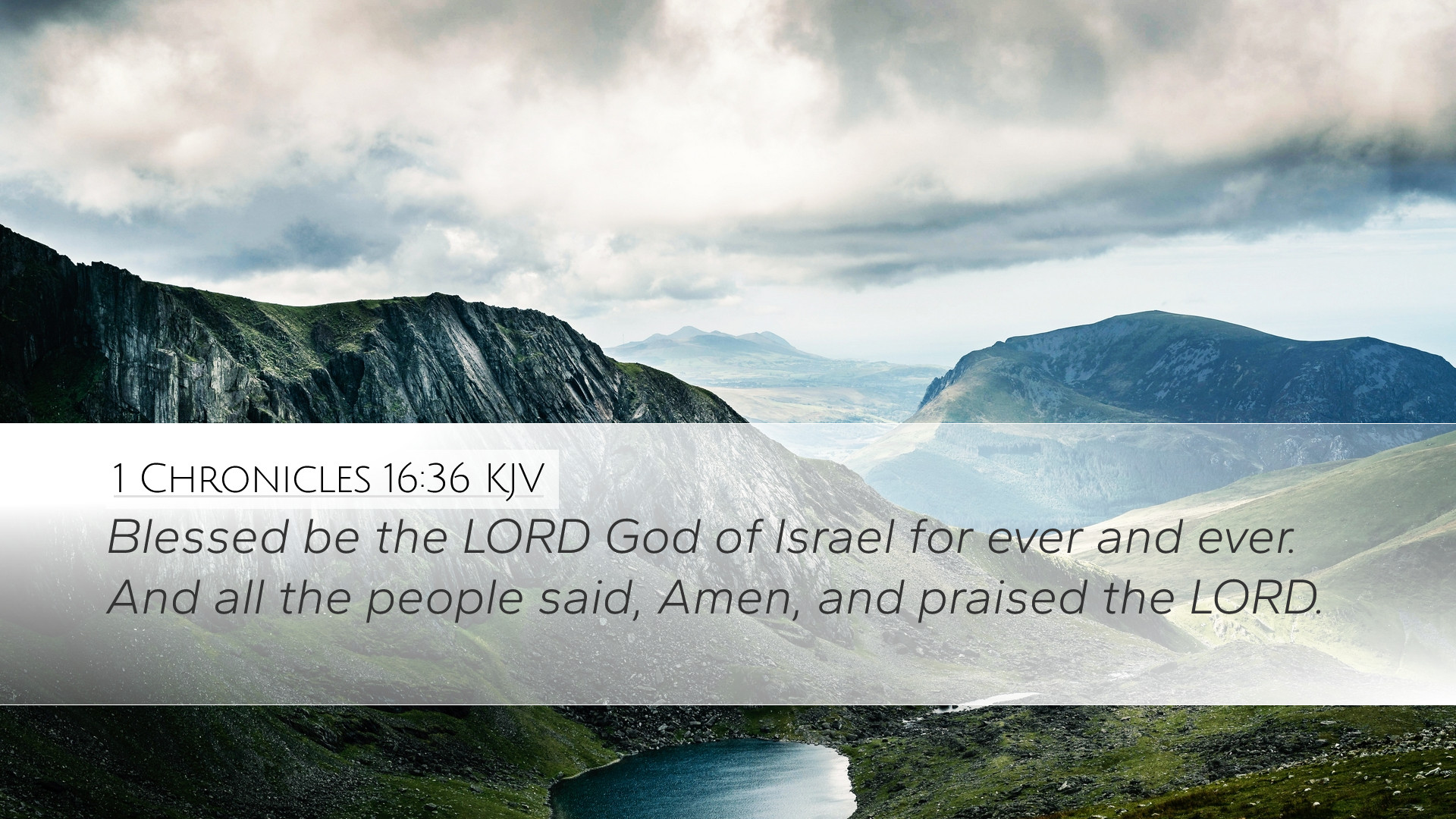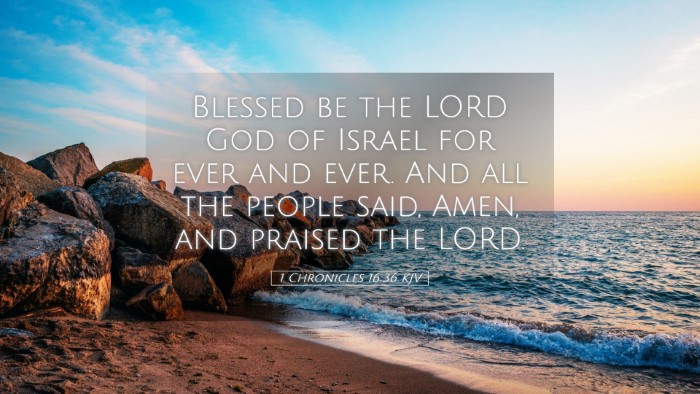Commentary on 1 Chronicles 16:36
Bible Verse: "Blessed be the LORD God of Israel for ever and ever. And all the people said, Amen, and praised the LORD."
Contextual Overview
This verse is placed within a significant moment of Israel's history, as it reflects a time of worship and acknowledgment of God's mighty works. Following the successful bringing of the Ark of the Covenant to Jerusalem, this celebration marks a critical transition in Israel's worship practices.
Theological Significance
Divine Praise: The phrase "Blessed be the LORD God of Israel" encapsulates the act of worship that signifies acknowledgment of God's sovereignty and providence in the life of Israel. The use of the word "blessed" emphasizes the human response to God's greatness and His inherent holiness.
God's Eternal Nature
This blessing, offered "for ever and ever," highlights the eternal nature of God, suggesting that His attributes and being are beyond temporal limitations, an important theological stance that resonates with the teachings of various biblical authors.
Community Response
The interjection "And all the people said, Amen" signifies a collective agreement among the Israelites. This response not only reinforces the communal aspect of worship but also emphasizes the importance of corporate declarations in the faith community.
Insights from Commentators
Matthew Henry
Henry observes that this moment is a blend of sacred duty and joyful acknowledgment. He notes the importance of recognizing God’s unchanging character amidst changing circumstances, suggesting that such moments of praise are vital to the life of faith. He emphasizes that the "Amen" signifies not just assent but an active participation in the worship experience.
Albert Barnes
Barnes underscores the historical context of this verse within Israel’s national revival. He points to how this moment encapsulates the central narrative of Israel as a theocracy under God’s rule. The amen signifies a fulcrum point in Israel’s collective identity, reinforcing their dependence on God’s guidance and support.
Adam Clarke
Clarke highlights the liturgical nature of this passage, indicating that such declarations of praise were likely part of Israel’s broader worship practices. He notes the importance of this verse in constructing a theology of worship, emphasizing that God’s blessings must be publicly proclaimed to incite enthusiasm and acknowledgment among His people.
Application for Today
Worship as a Community: In today's context, this verse serves as a reminder of the power of community in worship. The collective Amen signifies unity in faith and encourages congregations to engage in a shared acknowledgment of God's continual blessings.
The Role of Public Praise
Public declarations of praise should remain an integral part of Christian practice, as they serve to build faith within the community and testify to God’s faithful presence. Pastors and church leaders can draw from this model to foster environments where people are encouraged to vocalize their faith and respond collectively to God's goodness.
Conclusion
1 Chronicles 16:36 encapsulates a profound moment of worship, demonstrating the significance of both individual and communal acknowledgment of God’s character. As believers reflect on this passage, it continues to be relevant in the practice of worship, serving both as a challenge and an encouragement to maintain a heart of praise for God's everlasting faithfulness.


